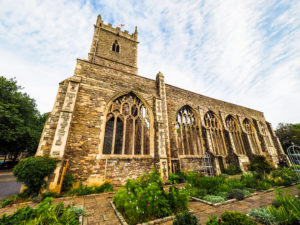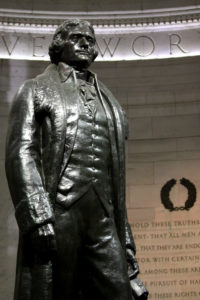The Lord is my shepherd,
I shall not want.
2 He makes me lie down in green pastures;
He leads me beside quiet waters.
3 He restores my soul;
He guides me in the paths of righteousness
For His name’s sake.
4 Even though I walk through the valley of the shadow of death,
I fear no evil, for You are with me;
Your rod and Your staff, they comfort me.
5 You prepare a table before me in the presence of my enemies;
You have anointed my head with oil;
My cup overflows.
6 Surely goodness and mercy will follow me all the days of my life,
And I will dwell in the house of the Lord forever.
– King David (1040-962 BCE), from Biblical Psalm 23 (about 1000 BCE)
 My dear one, you really own nothing that you think is yours except for your eternal mind. Everything else that you might think belongs to you, how ever solid it might seem to you now, is just a part of this very brief and actually altogether unreal reality that we all think we see around us now, which is more like a vast, collective human illusion. The whole of what we consider to be reality, including the bodies that we seem to inhabit, really is nothing but empty space. And this planet that we briefly visit, the way we might visit a local gym, is just a useful workout place where we can exercise spiritually, so we can ever more perfectly empower our vast, eternal minds. And why does reading this surprise you? It surprises you only because in order for you to get the greatest benefit from your brief but useful time on this planet, it is important that you take this life seriously, so you come into this experience with complete amnesia about what actually is going on, and why you even are here at all. A newborn baby has no idea! And neither do you and I. That way, we all will take this life seriously, as if we had been born into something that is real, even though it is more like just a flimsy stage set. We take on the problems of our earth-lives that each new day brings, not remembering that we, and those closest to us in this lifetime, actually planned these vexatious issues into our lives as mind-challenges, as opportunities for achieving greater spiritual growth while we are here.
My dear one, you really own nothing that you think is yours except for your eternal mind. Everything else that you might think belongs to you, how ever solid it might seem to you now, is just a part of this very brief and actually altogether unreal reality that we all think we see around us now, which is more like a vast, collective human illusion. The whole of what we consider to be reality, including the bodies that we seem to inhabit, really is nothing but empty space. And this planet that we briefly visit, the way we might visit a local gym, is just a useful workout place where we can exercise spiritually, so we can ever more perfectly empower our vast, eternal minds. And why does reading this surprise you? It surprises you only because in order for you to get the greatest benefit from your brief but useful time on this planet, it is important that you take this life seriously, so you come into this experience with complete amnesia about what actually is going on, and why you even are here at all. A newborn baby has no idea! And neither do you and I. That way, we all will take this life seriously, as if we had been born into something that is real, even though it is more like just a flimsy stage set. We take on the problems of our earth-lives that each new day brings, not remembering that we, and those closest to us in this lifetime, actually planned these vexatious issues into our lives as mind-challenges, as opportunities for achieving greater spiritual growth while we are here.
 Yet at the same time, come to think about it, far too many people don’t take their lives on earth anywhere nearly seriously enough! These precious earth-lives are our minds’ great opportunities for achieving sufficient elevation away from rage and hatred, and toward ever more perfect love, so we can hopefully stop having to keep incarnating on earth altogether. That glorious mind-elevation that we all so eagerly seek can in reality only happen here on earth. And then, we get to take it home when our earthly bodies die, and we get to use it in our eternal lives forevermore. Growing spiritually is the reason why we come to earth; and yet, because we come here with complete amnesia about the reason why we have come here in the first place, people will heedlessly cheat and abuse one another. Our brothers and sisters even will carelessly kill one another!
Yet at the same time, come to think about it, far too many people don’t take their lives on earth anywhere nearly seriously enough! These precious earth-lives are our minds’ great opportunities for achieving sufficient elevation away from rage and hatred, and toward ever more perfect love, so we can hopefully stop having to keep incarnating on earth altogether. That glorious mind-elevation that we all so eagerly seek can in reality only happen here on earth. And then, we get to take it home when our earthly bodies die, and we get to use it in our eternal lives forevermore. Growing spiritually is the reason why we come to earth; and yet, because we come here with complete amnesia about the reason why we have come here in the first place, people will heedlessly cheat and abuse one another. Our brothers and sisters even will carelessly kill one another!
 When I was invited to visit Jesus in the astral plane in April of 2022, I was allowed to retain a memory of those events so I could remember that He had told me His story. He told me then His actual reason for having chosen to be born from out of the Godhead as a Perfected Being, He said that His reason had been to teach people what is actually going on, that human life is eternal; and He wanted to teach people how to achieve enough mind-elevation to be able to make this incarnation, the one that you are living now, your last necessary incarnation on earth. Before Jesus was born, He watched from the Seventh astral level as people were born over and over again on earth, but because most of them never knew why they were here, they were making almost no progress at all! He told me He simply could not stand to watch people incarnate over and over again, learning almost nothing each time! That precise mind-training in forgiveness and love which would help people to learn to make rapid spiritual progress on earth was, very specifically, what The Way was that Jesus taught, and that He then sent His Disciples out to teach after His Resurrection; it was designed to solve this problem, once and for all. And for three hundred years, His Way was highly successful, spreading to millions of followers all around the Mediterranean Sea and as far away as Rome. However, Constantine’s fear-based Christianity supplanted Jesus’s Way. And sadly, it is its near-opposite!
When I was invited to visit Jesus in the astral plane in April of 2022, I was allowed to retain a memory of those events so I could remember that He had told me His story. He told me then His actual reason for having chosen to be born from out of the Godhead as a Perfected Being, He said that His reason had been to teach people what is actually going on, that human life is eternal; and He wanted to teach people how to achieve enough mind-elevation to be able to make this incarnation, the one that you are living now, your last necessary incarnation on earth. Before Jesus was born, He watched from the Seventh astral level as people were born over and over again on earth, but because most of them never knew why they were here, they were making almost no progress at all! He told me He simply could not stand to watch people incarnate over and over again, learning almost nothing each time! That precise mind-training in forgiveness and love which would help people to learn to make rapid spiritual progress on earth was, very specifically, what The Way was that Jesus taught, and that He then sent His Disciples out to teach after His Resurrection; it was designed to solve this problem, once and for all. And for three hundred years, His Way was highly successful, spreading to millions of followers all around the Mediterranean Sea and as far away as Rome. However, Constantine’s fear-based Christianity supplanted Jesus’s Way. And sadly, it is its near-opposite!
 So, yes, Christianity does not much follow Jesus. But it is a religion. Religions can make their own rules. What is really astonishing is the fact that mainstream scientists also make their own rules, while at the same time they also claim to be open-mindedly studying the objective truth. So, scientists are flat-out lying to us! In the early part of the twentieth century, Max Plank and his merry band of quantum physicists basically freaked out the traditional physicists when they announced that consciousness underlies everything. As our dear, amazed Max said in 1931, so this was almost a century ago now, “I regard consciousness as fundamental. I regard matter as derivative from consciousness. We cannot get behind consciousness! Everything that we talk about, everything that we regard as existing, postulates consciousness.” And he was right, of course. Consciousness does underlie it all. But the scientific gatekeepers, the university departments and the peer-reviewed journals, were not at all ready to go there, because there smacked too much of finding God; so around 1910, they informally but pretty firmly instituted what we might call the scientific dogma of materialism. They fixed their problem: no creator was now needed! They thereby turned science into the religion of atheism, and that is what science has been, ever since. Oh, there are some things that scientists still can do well. But there also are things they are compelled by their materialism dogma to do which are fundamentally crazy. At the moment, they are spending a billion dollars trying to find a source of consciousness inside the human brain, which is the precise equivalent of seeking to find your nightly newsman inside a television set.
So, yes, Christianity does not much follow Jesus. But it is a religion. Religions can make their own rules. What is really astonishing is the fact that mainstream scientists also make their own rules, while at the same time they also claim to be open-mindedly studying the objective truth. So, scientists are flat-out lying to us! In the early part of the twentieth century, Max Plank and his merry band of quantum physicists basically freaked out the traditional physicists when they announced that consciousness underlies everything. As our dear, amazed Max said in 1931, so this was almost a century ago now, “I regard consciousness as fundamental. I regard matter as derivative from consciousness. We cannot get behind consciousness! Everything that we talk about, everything that we regard as existing, postulates consciousness.” And he was right, of course. Consciousness does underlie it all. But the scientific gatekeepers, the university departments and the peer-reviewed journals, were not at all ready to go there, because there smacked too much of finding God; so around 1910, they informally but pretty firmly instituted what we might call the scientific dogma of materialism. They fixed their problem: no creator was now needed! They thereby turned science into the religion of atheism, and that is what science has been, ever since. Oh, there are some things that scientists still can do well. But there also are things they are compelled by their materialism dogma to do which are fundamentally crazy. At the moment, they are spending a billion dollars trying to find a source of consciousness inside the human brain, which is the precise equivalent of seeking to find your nightly newsman inside a television set.
 Your mind really is the only thing that you can call your own. So it is time for you now to concentrate on taking very much better care of it! Just quickly, let’s understand what your mind is, and where you actually are in the great scheme of reality. First, let’s acknowledge that our dear brother Max Planck was right! Consciousness is in fact all that exists, and everything else that we might think is real is an artifact of that Consciousness. And of course, since we now realize that Consciousness is all that exists, we now treat the whole topic of Consciousness with a lot more respect! For example, from now on we will capitalize the word. How might we define the Consciousness that is all there is? We should note here that mainstream scientists cannot yet even define Consciousness at all. But with considerable help from my Thomas, what is given below is the best definition of Consciousness that I have been able to manage; he tells me that it will turn out to be right.
Your mind really is the only thing that you can call your own. So it is time for you now to concentrate on taking very much better care of it! Just quickly, let’s understand what your mind is, and where you actually are in the great scheme of reality. First, let’s acknowledge that our dear brother Max Planck was right! Consciousness is in fact all that exists, and everything else that we might think is real is an artifact of that Consciousness. And of course, since we now realize that Consciousness is all that exists, we now treat the whole topic of Consciousness with a lot more respect! For example, from now on we will capitalize the word. How might we define the Consciousness that is all there is? We should note here that mainstream scientists cannot yet even define Consciousness at all. But with considerable help from my Thomas, what is given below is the best definition of Consciousness that I have been able to manage; he tells me that it will turn out to be right.
Consciousness is an energy-like potentiality without size or form, alive in the sense that your mind is alive, infinitely powerful and creative and also highly emotional, and therefore almost certainly self-aware. Its emotional range exists from what we feel as fear, anger and hatred at its lowest, slowest, and weakest vibrations, and perfect love at its highest, most rapid, and most powerful vibrations.
 As Max Planck and his contemporaries discovered more than a century ago, there is no way to “get behind” Consciousness. Or to put it more accurately, you cannot “get outside” consciousness; because in fact, there is nothing whatsoever beyond Consciousness, in any direction. So, okay then. Let’s pause here for a moment and think about this. As we are coming now to better understand reality, and how reality actually works, your eternal mind is not “created” at all; but rather, your mind is of the very stuff of the Creator, and inextricably part of the Creative Mind. There is no clear separation whatsoever between your mind and the minds of all other people, and there is no separation between your mind and the Great Creative Mind. All is One Mind! We know, too, that our pets, and in fact we know that all animals possess eternal minds as well, and that animals that we have loved will be waiting for us in the astral afterlife, and will greet us there when we transition home. In fact, as the wonderful and astonishing galvanometer expert Cleve Backster proved extensively as far back as the nineteen-sixties, living plants also are conscious in their way, and they are easily able to read our minds, so there is no separation even between individual plants’ minds, or between their minds and our minds, either. So, of course, all this mind-stuff must be eternal, by its very nature! And all these minds are One Mind. Every living creature, including presumably every living fish and insect and even every living microbe, and for certain of course every living plant, is, with us, inextricably part of the one great, vast, and eternal Consciousness, which, thanks to Max Planck and the other earliest quantum physicists, we know is all that exists.
As Max Planck and his contemporaries discovered more than a century ago, there is no way to “get behind” Consciousness. Or to put it more accurately, you cannot “get outside” consciousness; because in fact, there is nothing whatsoever beyond Consciousness, in any direction. So, okay then. Let’s pause here for a moment and think about this. As we are coming now to better understand reality, and how reality actually works, your eternal mind is not “created” at all; but rather, your mind is of the very stuff of the Creator, and inextricably part of the Creative Mind. There is no clear separation whatsoever between your mind and the minds of all other people, and there is no separation between your mind and the Great Creative Mind. All is One Mind! We know, too, that our pets, and in fact we know that all animals possess eternal minds as well, and that animals that we have loved will be waiting for us in the astral afterlife, and will greet us there when we transition home. In fact, as the wonderful and astonishing galvanometer expert Cleve Backster proved extensively as far back as the nineteen-sixties, living plants also are conscious in their way, and they are easily able to read our minds, so there is no separation even between individual plants’ minds, or between their minds and our minds, either. So, of course, all this mind-stuff must be eternal, by its very nature! And all these minds are One Mind. Every living creature, including presumably every living fish and insect and even every living microbe, and for certain of course every living plant, is, with us, inextricably part of the one great, vast, and eternal Consciousness, which, thanks to Max Planck and the other earliest quantum physicists, we know is all that exists.
 Yet of all this great, teeming mass of life that is, to at least some minimal extent, living in conscious awareness on this planet, it is only people who are sufficiently sophisticated minds that we are inspired to attempt to further elevate our minds spiritually within the Consciousness which is all that exists. I believe that we can say this with confidence. In my whole half-century of doing extensive afterlife research, I have seen no evidence, and not even a hint, that any other form of life also ever seems to be attempting to elevate themselves at all toward more perfect love! Yet when we are in the beautiful astral plane levels of Consciousness, which is where our minds spend most of our eternity, we come to crave greater and ever greater elevation of our minds. We then choose to be born yet again on the earth plane, with amnesia for why we are here but with a plan for growing spiritually.
Yet of all this great, teeming mass of life that is, to at least some minimal extent, living in conscious awareness on this planet, it is only people who are sufficiently sophisticated minds that we are inspired to attempt to further elevate our minds spiritually within the Consciousness which is all that exists. I believe that we can say this with confidence. In my whole half-century of doing extensive afterlife research, I have seen no evidence, and not even a hint, that any other form of life also ever seems to be attempting to elevate themselves at all toward more perfect love! Yet when we are in the beautiful astral plane levels of Consciousness, which is where our minds spend most of our eternity, we come to crave greater and ever greater elevation of our minds. We then choose to be born yet again on the earth plane, with amnesia for why we are here but with a plan for growing spiritually.
 So, here your mind is now on earth, once again. And most of us have lived many lifetimes on earth, each of which has brought only minimal spiritual growth, because your mind’s spiritual-growth needs are intense. And they are very precise! Many people live hundreds of lifetimes on earth, just “turning on the wheel”, as the Buddhists say, and as Jesus observed with considerable frustration, but making only minimal progress each time. Good grief, Thomas tells me that I have lived seventeen earth-lifetimes just with him, alone! Your mind’s past experience likely has been about the same; and yet, if you and I had lived our previous lives with more care and precision, perhaps we could have made any of those other lives the last one that really was necessary for us to spend here. Now, if you are to have any hope at all of making this your last necessary lifetime on this earth, you will need to raise your mind’s spiritual vibration considerably! These are the most important things that you really must do, this time around:
So, here your mind is now on earth, once again. And most of us have lived many lifetimes on earth, each of which has brought only minimal spiritual growth, because your mind’s spiritual-growth needs are intense. And they are very precise! Many people live hundreds of lifetimes on earth, just “turning on the wheel”, as the Buddhists say, and as Jesus observed with considerable frustration, but making only minimal progress each time. Good grief, Thomas tells me that I have lived seventeen earth-lifetimes just with him, alone! Your mind’s past experience likely has been about the same; and yet, if you and I had lived our previous lives with more care and precision, perhaps we could have made any of those other lives the last one that really was necessary for us to spend here. Now, if you are to have any hope at all of making this your last necessary lifetime on this earth, you will need to raise your mind’s spiritual vibration considerably! These are the most important things that you really must do, this time around:
- Avoid All Negative Entertainments and Pastimes. When I finally got serious about protecting my mind, I found that I was so sensitive to negativity that now I can’t even watch movies or TV that contain stressful scenes or even arguments, so I avoid movies and TV altogether. No video games either. I have tamped down my music to lovely symphonies, beautiful old Doo-Wop slow dance stuff, just the most peaceful entertainments that you can imagine. I can’t bear to watch hammery sorts of news shows, but if something is important, I will hear about it eventually.
- If You Want to Attend Religious Services, Find a Love-Based Version. For a long time, I went to Catholic Mass with my husband. But when I really got serious about raising my spiritual vibration, I had to stop doing that, because seeing that life-sized, full-color Jesus bleeding on the cross over the altar was too upsetting to me. You might experiment with a Unity Church if you can find one nearby, or a Unitarian or a Congregational Church, a Jewish Chabad, or another sort of love- and joy-based religious home.
- Never Mess with Negative Beings or Ideas. Various low-vibration aspects of Consciousness do exist, and sometimes they wear a positive mask. Mostly, these are influences and fragments from very low-vibration dead people that are still hanging around on earth, believe it or not, and your mind has natural defenses against them; but still, you can get yourself in trouble with them if you are not careful, especially when a friend or a family member suggests that you accompany them to this or that “spiritual” event. There are of course some helpful non-Christian gurus, but there are many who are not helpful at all, and some which are quite spiritually harmful. Don’t waste this lifetime! For you, it must be only Jesus.
- Frequently Read and Closely Follow the Teachings of Jesus on Forgiveness and Love. It is amazing how rapidly and well those teachings work! My Thomas tells me that when Jesus was on earth, He taught prevenient forgiveness, and using that technique is the easiest way to free your mind of every bit of guilt altogether. Then, just let Jesus into your heart! Give yourself over to the love and peace that passes all understanding. Now it truly begins!
 My Thomas has recently informed me that I have managed to raise my mind’s vibration enough that now this can be my last necessary earth-lifetime. What this means is that I have achieved the upper part of what afterlife researchers call Level Five of the seven aggregate astral levels. Those at this level are far enough now from all negativity that we can continue to grow spiritually by teaching in the astral plane, by serving in the healing gardens and in the children’s villages, and by acting as spirit guides for people who are taking lives on earth. This is an important and exciting achievement! Wow. This is spiritual nosebleed level. I could feel that a lot was happening in my mind of late, and soon I will write more about it for you. I was becoming a lot more peaceful. Nothing ever was bothering me anymore. I am always so happy now! And I mean, always, all the time, no matter what is going on around me. Happy for no reason! But, OMG, my much-beloved friends, if I can do it, then I promise you that you can do it, too! Simply follow the perfect instructions that were given to us by our so very deeply treasured Wayshower and Best Friend. Jesus gave to you and me the surest recipe for very rapid spiritual growth there can be! And wow, it really works so well!! Now, very soon it will be up to us to put our minds to teaching the whole world to follow His lead, because soon we can demonstrate what the end will be. He came to bring peace to all the world, and now we can see how it will come….
My Thomas has recently informed me that I have managed to raise my mind’s vibration enough that now this can be my last necessary earth-lifetime. What this means is that I have achieved the upper part of what afterlife researchers call Level Five of the seven aggregate astral levels. Those at this level are far enough now from all negativity that we can continue to grow spiritually by teaching in the astral plane, by serving in the healing gardens and in the children’s villages, and by acting as spirit guides for people who are taking lives on earth. This is an important and exciting achievement! Wow. This is spiritual nosebleed level. I could feel that a lot was happening in my mind of late, and soon I will write more about it for you. I was becoming a lot more peaceful. Nothing ever was bothering me anymore. I am always so happy now! And I mean, always, all the time, no matter what is going on around me. Happy for no reason! But, OMG, my much-beloved friends, if I can do it, then I promise you that you can do it, too! Simply follow the perfect instructions that were given to us by our so very deeply treasured Wayshower and Best Friend. Jesus gave to you and me the surest recipe for very rapid spiritual growth there can be! And wow, it really works so well!! Now, very soon it will be up to us to put our minds to teaching the whole world to follow His lead, because soon we can demonstrate what the end will be. He came to bring peace to all the world, and now we can see how it will come….
because You have anointed my head with oil;
My cup overflows.
6 Surely goodness and mercy will follow me all the days of my life,
And I will dwell in the house of the Lord forever.
– King David (1040-962 BCE), from Biblical Psalm 23 (about 1000 BCE)
(Many photos are from Vecteezy.com)


































































